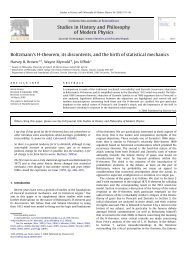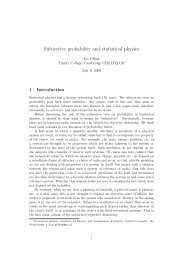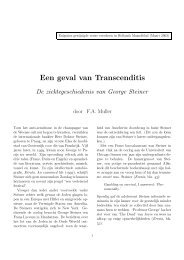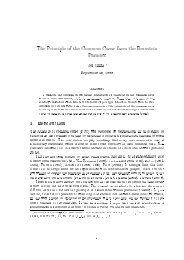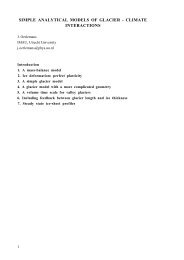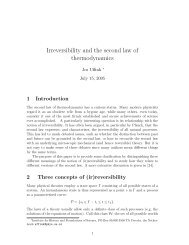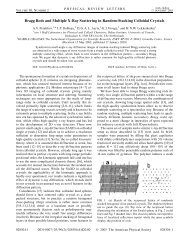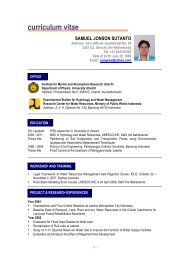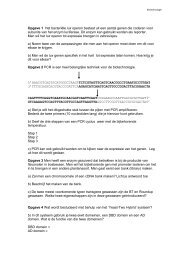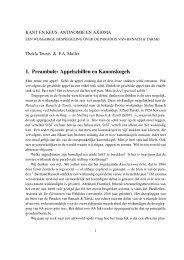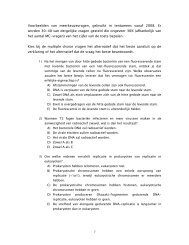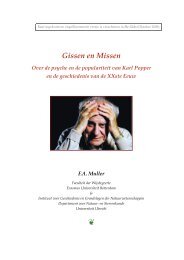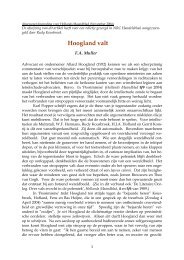FOUNDATIONS OF QUANTUM MECHANICS
FOUNDATIONS OF QUANTUM MECHANICS
FOUNDATIONS OF QUANTUM MECHANICS
Create successful ePaper yourself
Turn your PDF publications into a flip-book with our unique Google optimized e-Paper software.
VIII<br />
THE MEASUREMENT PROBLEM<br />
[. . . ] if one has to stick to these darn quantum jumps then I regret that I ever have taken<br />
part in the whole thing.<br />
— Erwin Schrödinger<br />
In this final chapter we will elaborate on the most important interpretation problem, the measurement<br />
problem, which has the subject of an ever-continuing series of publications. We will give<br />
an introduction to Von Neumann’s quantum mechanical measurement theory and formulate the<br />
measurement problem, we will go through a number of attempts to solve it, and finally we will<br />
discuss some criticism of the theory.<br />
VIII. 1<br />
INTRODUCTION<br />
The term ‘measurement’ plays a very special role in quantum mechanics, and we suggest a short<br />
rereading of the first paragraphs of chapter V. It is remarkable that the term arises in the Von Neumann<br />
postulates as described in chapter III, p. 41, ff. Both in the measurement postulate, specifying the<br />
possible outcomes of measurement and giving a physical meaning to the probability measure which<br />
is determined by the state vector, or the state operator, in terms of outcomes of measurement, and<br />
in the projection postulate, establishing the evolution in time of the state at measurement, the term<br />
‘measurement’ comes forward.<br />
That special role also becomes apparent in the debates concerning the interpretation of the theory,<br />
where it is frequently remarked that measurement ‘creates’ the value for a quantity, or that it causes a<br />
sudden state change, as expressed by Dirac (1958, p. 36),<br />
In this way we see that a measurement always causes the system to jump into an eigenstate<br />
of the dynamical variable that is being measured, the eigenvalue this eigenstate<br />
belongs to being equal to the result of the measurement.<br />
From the perspective of classical physics, this is extremely unusual. In Newton’s theory of gravitation,<br />
or the electrodynamics of Faraday and Maxwell, measurements are sometimes mentioned, as<br />
suppliers of experimental facts, but never as specific types of operation on physical systems, needing<br />
a separate treatment in the theory.<br />
The point here is not only that measurements in classical physics, as is frequently stated, always<br />
bring about a negligible or compensable disturbance of the system and therefore can remain outside<br />
consideration, much more important is, that in in classical physics there is no distinction in principle



